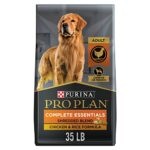Dog Health Insurance Coverage medical expenses for your pet. It includes accidents, illnesses, and preventive care.
Dog health insurance helps manage unexpected veterinary costs. Pet owners often face high bills for treatments and surgeries. Insurance can ease the financial burden. Policies vary, covering different levels of care. Common plans include accident-only, illness, and comprehensive coverage. Some even offer wellness options for routine check-ups and vaccinations.
Choosing the right plan depends on your dog’s age, breed, and health history. Investing in insurance ensures your pet gets the best care without breaking the bank. It offers peace of mind knowing you’re prepared for any health issues. Always read policy details to understand coverage and exclusions.

Credit: www.forbes.com
Introduction To Dog Health Insurance
Dog health insurance helps cover vet bills. It provides peace of mind. Many owners find it useful. Unexpected vet visits can be costly. Insurance helps manage these expenses. It ensures your dog gets the best care.
Why Insure Your Dog?
Your dog is part of your family. You want the best for them. Vet bills can be very high. Emergency care costs even more. Insurance helps cover these costs. It makes treatments more affordable. You won’t have to choose between care and cost.
- Unexpected Illnesses: Dogs can get sick suddenly. Insurance helps cover treatment.
- Accidents: Dogs can get hurt. Insurance covers emergency care.
- Routine Care: Some plans cover regular check-ups. This keeps your dog healthy.
The Growth Of Pet Insurance Industry
The pet insurance industry is growing fast. More people are getting pets. They want to keep them healthy. Insurance companies see this trend. They offer more plans now. This growth benefits pet owners. More plans mean more choices.
| Year | Number of Insured Pets |
|---|---|
| 2015 | 1 million |
| 2020 | 2.5 million |
| 2023 | 3.5 million |
More pet owners choose insurance now. They see the benefits. They want to protect their pets. Insurance gives them peace of mind. It ensures their pets get the best care.
Types Of Dog Health Insurance Plans
Choosing the right dog health insurance can be tough. There are different plans to consider. Each plan offers unique benefits and coverage options. Below are the main types of dog health insurance plans.
Accident-only Plans
Accident-only plans are basic. They cover injuries from accidents. These plans are often cheaper. They don’t cover illnesses or routine care.
- Broken bones
- Ingesting harmful objects
- Accidental poisoning
These plans are good for active dogs. They offer protection against unexpected incidents. They are a budget-friendly option.
Comprehensive Coverage
Comprehensive plans cover both accidents and illnesses. They offer more protection. These plans are more expensive. They usually cover:
- Chronic conditions like diabetes
- Emergency care
- Surgeries and hospital stays
These plans are ideal for dogs with health issues. They ensure your dog gets the best care. They offer peace of mind for pet owners.
Wellness And Preventive Care
Wellness plans cover routine care. They focus on preventive measures. These plans help keep your dog healthy. They often include:
- Vaccinations
- Annual check-ups
- Flea and tick treatments
Wellness plans are great for young dogs. They help catch problems early. They support long-term health and well-being.
| Plan Type | Coverage |
|---|---|
| Accident-Only | Injuries from accidents |
| Comprehensive | Accidents and illnesses |
| Wellness | Routine and preventive care |
Choosing the right plan depends on your dog’s needs. Consider your budget and what coverage is important. Each plan has its own benefits. Make an informed choice to ensure your dog’s health and happiness.
What Does Dog Health Insurance Cover?
Dog health insurance can be a lifesaver. It helps manage unexpected vet bills. But what exactly does it cover? This section explores the main types of coverage. Understanding this can help you make informed decisions. Let’s dive in!
Common Illnesses And Accidents
Dog health insurance often covers common illnesses. These include ear infections, skin allergies, and gastrointestinal issues. Accidents are also covered. This includes broken bones, cuts, and poisoning. Having insurance ensures your dog gets timely care.
Chronic Conditions
Chronic conditions need ongoing treatment. Examples are diabetes, arthritis, and heart disease. Insurance helps cover the costs. This ensures your dog stays healthy over time. Regular check-ups and medications can be very expensive.
Hereditary And Congenital Disorders
Some breeds are prone to certain health issues. These are known as hereditary and congenital disorders. Examples include hip dysplasia, cataracts, and epilepsy. Many insurance plans cover these conditions. This can save you a lot of money in the long run.
| Type of Coverage | Examples |
|---|---|
| Common Illnesses and Accidents | Ear infections, broken bones, poisoning |
| Chronic Conditions | Diabetes, arthritis, heart disease |
| Hereditary and Congenital Disorders | Hip dysplasia, cataracts, epilepsy |
- Common Illnesses: ear infections, skin allergies
- Accidents: broken bones, cuts, poisoning
- Chronic Conditions: diabetes, arthritis, heart disease
- Hereditary and Congenital Disorders: hip dysplasia, cataracts, epilepsy
- Common Illnesses and Accidents
- Chronic Conditions
- Hereditary and Congenital Disorders

Credit: www.petsbest.com
Understanding Premiums And Deductibles
Understanding premiums and deductibles is key to choosing dog health insurance. These factors affect your monthly costs and out-of-pocket expenses. Let’s break down what they mean and how to decide what’s best for you and your furry friend.
Calculating Insurance Premiums
Insurance premiums are the amount you pay monthly or yearly. Several factors influence these costs. The following table explains these factors:
| Factor | Description |
|---|---|
| Breed | Some breeds are more prone to health issues. |
| Age | Older dogs generally cost more to insure. |
| Location | Vet costs vary by region. |
| Coverage Type | More coverage means higher premiums. |
To find the best premium, compare different plans. Look at what each plan covers and how much it costs.
Choosing The Right Deductible
A deductible is what you pay before insurance kicks in. There are two types of deductibles:
- Annual Deductible: You pay this amount once per year.
- Per-Incident Deductible: You pay this amount for each new condition or injury.
Choosing the right deductible depends on your budget and your dog’s health needs. Here are some tips:
- If your dog is healthy, a higher deductible might save money.
- If your dog has chronic issues, a lower deductible could be better.
Balancing premiums and deductibles can maximize coverage while managing costs. Assess your dog’s health and your financial situation to find the optimal plan.
The Claims Process Explained
Understanding the claims process for dog health insurance is crucial. This ensures you get the most out of your policy. Here, we break down the steps involved in filing a claim and the reimbursement procedures.
Filing A Claim
To start, gather all necessary documents. These include:
- Veterinary bills
- Medical reports
- Claim form
Next, fill out the claim form. Make sure all information is accurate. Attach the required documents. Submit these to your insurance provider. Most providers accept claims via:
- Online portal
After submission, you will receive a confirmation. This usually includes a claim reference number. Keep this number for future reference.
Reimbursement Procedures
Once your claim is approved, the reimbursement process begins. The insurer reviews the claim. They check the documents and verify the expenses.
After verification, the insurer calculates the reimbursement amount. This is based on your policy coverage. Factors include:
| Factor | Description |
|---|---|
| Deductibles | Amount you pay before coverage starts |
| Co-pay | Percentage of the claim you pay |
| Coverage Limits | Maximum amount the insurer pays |
Reimbursement is usually sent via:
- Direct deposit
- Check
Keep track of all reimbursements. Review your policy regularly. This helps you stay informed about your coverage.
Exclusions And Limitations
Dog health insurance can provide peace of mind. But it’s important to understand the exclusions and limitations. Knowing what isn’t covered can help you avoid surprises.
Pre-existing Conditions
Most insurance plans exclude pre-existing conditions. This means any illness or injury your dog had before the policy start date. For example, if your dog had allergies before you got the insurance, those allergies won’t be covered.
Some policies may consider a condition “pre-existing” if it shows symptoms before the policy begins. Always read the fine print to understand what counts as a pre-existing condition.
Breed-specific Exclusions
Some breeds have higher risks for certain illnesses. Insurance companies may exclude these breed-specific conditions from coverage. For example, Bulldogs often have respiratory issues, and this might not be covered.
Here is a table showing common breed-specific exclusions:
| Breed | Common Exclusions |
|---|---|
| Bulldogs | Respiratory issues |
| German Shepherds | Hip dysplasia |
| Dachshunds | Back problems |
Make sure to check if your dog’s breed has specific exclusions. This can help you understand what will and won’t be covered.
Choosing The Right Insurance For Your Dog
Picking the right insurance for your dog is vital. It ensures your dog’s health and your peace of mind. The best insurance plan depends on many factors. We will guide you through the essential steps.
Assessing Your Dog’s Needs
First, consider your dog’s age, breed, and health history. Different dogs have different needs.
- Age: Older dogs may need more medical care.
- Breed: Some breeds are prone to specific health issues.
- Health History: Pre-existing conditions can affect coverage.
Talk to your vet about your dog’s specific needs. This will help you choose a plan that covers your dog’s potential health issues.
Comparing Insurance Providers
Not all insurance providers are the same. Compare their plans and benefits.
| Provider | Monthly Cost | Coverage Details | Customer Reviews |
|---|---|---|---|
| Provider A | $30 | Includes routine check-ups and emergency care | 4.5/5 |
| Provider B | $25 | Covers surgeries and special treatments | 4.0/5 |
| Provider C | $35 | Comprehensive plan with dental care | 4.8/5 |
Look for plans that offer the best coverage for the price. Read customer reviews to gauge satisfaction with the provider. Make sure to check the fine print for any exclusions or limitations.
Real-life Stories: The Value Of Dog Health Insurance
Dog health insurance can save lives and wallets. Real-life stories show its value. Pet owners share how insurance helped during tough times. Here are some examples.
Case Studies
| Dog Name | Issue | Insurance Payout |
|---|---|---|
| Bella | Broken Leg | $4,000 |
| Max | Cancer Treatment | $10,000 |
| Luna | Allergy Care | $2,500 |
Bella’s owner was heartbroken when she broke her leg. The vet bill was high. Insurance covered $4,000, easing their burden.
Max needed cancer treatment. The cost was overwhelming. Insurance paid $10,000. This allowed Max to get the care he needed.
Luna had severe allergies. Her treatment was expensive. Insurance covered $2,500. This helped her owner manage the costs.
Testimonials From Pet Owners
Sarah: “Insurance saved Bella’s life. I couldn’t afford her surgery. The payout was a blessing.”
John: “Max’s cancer treatment was costly. Without insurance, I don’t know what I’d do. It covered most of the bills.”
Emily: “Luna’s allergy care was very expensive. The insurance payout helped us a lot. I’m so grateful.”
These stories show the importance of dog health insurance. It’s a safety net for unexpected events. It helps pet owners provide the best care.
Future Trends In Pet Insurance
The world of pet insurance is evolving rapidly. Dog owners now have more options than ever before. Understanding future trends can help you make informed decisions about your pet’s coverage. Let’s explore what’s coming next in pet insurance.
Technological Advances
Technology is revolutionizing pet insurance. With smart devices and wearable tech, tracking your dog’s health is easier. These gadgets provide real-time data on your dog’s activity levels and health metrics.
Insurance companies can use this data for more accurate risk assessments. This means potentially lower premiums for responsible pet owners. Telemedicine is another exciting development. Virtual vet visits can reduce the need for costly in-person appointments.
AI and machine learning are also making waves. These technologies can predict health issues before they become serious. This proactive approach can lead to better health outcomes and lower costs.
Predictions For Coverage Expansion
Pet insurance coverage is becoming more comprehensive. Expect to see plans that cover holistic treatments. Services like acupuncture, chiropractic care, and even pet therapy may be included.
Behavioral health is gaining attention. More policies are starting to cover training and behavioral therapies. This can help address issues like separation anxiety or aggression.
Genetic testing is another area of growth. Insurance plans may soon cover these tests. This can help identify potential health risks early. Early intervention can save you money and keep your dog healthier.
Here’s a quick overview of future coverage trends:
| Coverage Type | Future Inclusion |
|---|---|
| Holistic Treatments | Yes |
| Behavioral Health | Yes |
| Genetic Testing | Yes |
These trends are paving the way for more comprehensive pet care. Stay informed to get the best coverage for your furry friend.

Credit: www.usatoday.com
Final Thoughts On Protecting Your Pup
Protecting your dog is crucial. Dog health insurance helps in many ways. It covers unexpected medical costs. This way, your furry friend stays healthy and happy. Let’s dive into some key points about dog health insurance coverage.
The Peace Of Mind Factor
With dog health insurance, you get peace of mind. You don’t worry about unexpected vet bills. Your pet’s health is in good hands. This insurance helps you focus on your dog’s well-being.
Knowing you have coverage is comforting. Emergencies can be stressful. But with insurance, you are prepared. This reduces your stress and ensures your dog’s care.
Investing In Your Dog’s Health
Dog health insurance is an investment. It ensures your dog gets the best care. Regular check-ups and preventive care are covered. This keeps your dog healthy and happy.
Below is a table showing key benefits of dog health insurance:
| Benefit | Description |
|---|---|
| Emergency Coverage | Covers unexpected accidents and emergencies. |
| Routine Care | Includes vaccinations and regular check-ups. |
| Chronic Conditions | Manages long-term health issues. |
Here are some benefits in list format:
- Emergency Coverage: Covers unexpected accidents and emergencies.
- Routine Care: Includes vaccinations and regular check-ups.
- Chronic Conditions: Manages long-term health issues.
Investing in dog health insurance pays off. It secures your dog’s future. With good health, your dog enjoys life fully.
Frequently Asked Questions: DOG HEALTH INSURANCE COVERAGE
What Does Pet Insurance Actually Cover?
Pet insurance covers accidents, illnesses, surgeries, medications, and sometimes wellness visits. Coverage varies by policy. Always check specifics.
What Are The Three Types Of Pet Insurance?
The three types of pet insurance are accident-only, accident and illness, and wellness plans. Accident-only covers injuries. Accident and illness plans cover injuries and diseases. Wellness plans cover routine care like vaccinations.
Does Dog Insurance Cover Vaccines?
Dog insurance often covers vaccines under wellness plans. Check your specific policy for details. Coverage varies by provider.
What Is The Difference Between Pet Insurance And A Wellness Plan?
Pet insurance covers unexpected accidents and illnesses. A wellness plan focuses on routine care like vaccinations and check-ups. Both provide financial support for pet care.
What does Dog Health Insurance Cover?
Dog health insurance typically covers accidents, illnesses, surgeries, and sometimes preventive care like vaccinations and check-ups.
Is Dog Health Insurance Worth It?
Yes, it can save you money on unexpected veterinary bills and ensure your dog receives necessary medical care.
How much Does Dog Health Insurance Cost?
The cost varies by provider, dog breed, age, and coverage level but typically ranges from $20 to $50 per month.
Can I Choose Any Vet With Insurance?
Most dog health insurance plans allow you to visit any licensed veterinarian, providing flexibility in choosing your pet’s care.
Conclusion
Dog health insurance offers peace of mind and financial relief. It ensures your pet receives timely medical care. Investing in coverage can save you from unexpected expenses. Prioritize your dog’s health by choosing a suitable insurance plan. Your furry friend deserves the best protection available.







